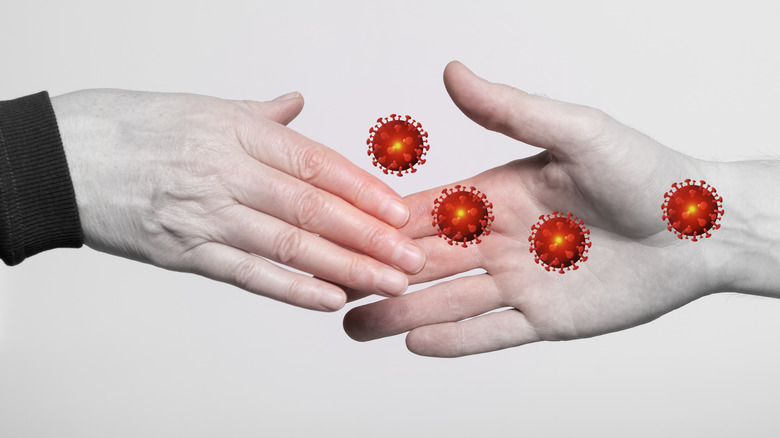Meet The New Omicron Subvariant With Super-Spreading Capabilities: BA.2.12.1
At the start of 2022, the U.S. averaged more than 800,000 new COVID-19 cases daily, reports U.S. News & World Report. Although we have since seen a decline in these numbers, new cases are currently tallying upwards of 100,000 per day, the majority of which are now dominated by a new subvariant deemed BA.2.12.1.
As per the U.S. Centers for Disease Control and Prevention (CDC), BA.2.12.1 made up 57.9% of new infection cases during the last week. In comparison, the previous dominant strain, BA.2, made up just over 39% of cases. In a public statement, White House Covid-19 response coordinator, Dr. Ashish Jha, explained why BA.2.12.1 cases, along with BA.4 and BA.5 cases, are on the rise, reports Vox. "They are more contagious with more immune escape, and they are driving a lot of the increases in infection that we're seeing across the nation right now," Dr. Jha stated. As a highly transmissible subvariant, experts report BA.2.12.1 to be 25% more transmissible than the previous BA.2 strain (via U.S. News & World Report). In addition, it is also thought to have an increased risk of reinfection, reports Vox.
BA.2.12.1 may pose a high risk for reinfection
Because of BA.2.12.1's high spreading capabilities, experts state that the chances for breakthrough infections and cases of reinfection are high (via Vox). "The thing with omicron, though, and all the [subvariants] therein, is now a lot of the growth advantage is driven by reinfections," explains infectious disease fellow at the University of Pennsylvania, Dr. Aaron Richterman, to Vox. BA.2.12.1 also shows the ability to evade some of the body's immunity previously established from prior subvariants, further contributing to an increased likelihood for reinfection.
As experts continue to examine the nature of BA.2.12.1, there is no current evidence to suggest that it causes more severe cases of infection (per U.S. News & World Report). As reported by NBC Chicago, research has shown symptoms of fatigue and runny nose to be somewhat higher in those with BA.2.12.1 infections. While some experts suggest that reinfection cases are likely to be mild in otherwise healthy adults, the elderly, as well as those with compromised immunity, are still at risk for severe COVID-19 symptoms and complications (via Vox).


